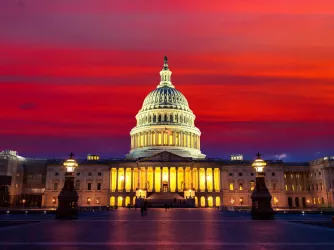Table of Contents
American Law Institute Wades into Campus Sexual Assault Debate

The Philadelphia-based American Law Institute (ALI), best known for its influential Model Penal Code, has undertaken a project specifically focused on campus sexual assault, according to The Chronicle of Higher Education (subscription required).
The Chronicle reports that the project “will involve developing ‘guiding principles’ for college officials, courts, and legislatures to use as a resource.” ALI’s website describes the project’s scope as follows:
A partial list of issues to be considered includes reporting procedures; confidentiality; relationships with police and local criminal justice; interim measures and support for complainants; investigation and adjudication; the role of lawyers; the creation and maintenance of records; sanctions or remedies; and appeals. The project will also examine informal resolutions, as well as the nature of hearings.
Notably absent from this list is any explicit mention of the due-process concerns plaguing campus sexual assault proceedings. Any meaningful treatment of the topic must address these serious shortcomings, which have led to condemnation by civil liberties organizations (including FIRE) and to a growing number of lawsuits filed by students who allege they were treated unfairly—to the point of illegality—in campus proceedings.
ALI’s most recent draft of its Model Penal Code—which includes revisions to the sexual violence provisions—has been harshly criticized for advocating a criminal-law definition of consent similar to the “affirmative consent” standard increasingly popular on college campuses. And while New York University Law professor Stephen Schulhofer, who is involved in both the Model Penal Code and the campus sexual assault projects, told the Chronicle that he did not intend to recommend an affirmative consent standard in the criminal law,
he said it was worth considering something close to it for a college setting. “I think it’s better to have both parties understand that you don’t take the next step unless you’re sure that it’s welcome,” he said.
Given the due process concerns inherent in the use of an affirmative consent standard for adjudicating claims of sexual assault on campus or elsewhere, this adds to FIRE’s concern that ALI’s guidelines will not adequately protect the rights of accused students.
On the upside, ALI does appear to have engaged at least several consultants on the college project who are vocal advocates for due process in campus proceedings. Harvard Law School professors Nancy Gertner and Jeannie Suk, both of whom are listed as part of the project’s “Members Consultative Group,” were among the 28 Harvard Law professors who last fall issued a public statement condemning revisions to Harvard’s sexual harassment policy. Harvard’s procedures, the professors wrote, “lack the most basic elements of fairness and due process, are overwhelmingly stacked against the accused, and are in no way required by Title IX law or regulation.” Since then, Professors Suk and Gertner have continued to advocate in various fora for due process in campus proceedings.
Given ALI’s influence, FIRE hopes that any guidance from the organization will reflect the critical importance of protecting the rights of all parties involved in campus sexual assault proceedings.
The working group’s next meeting will take place in June; FIRE will keep you posted.
Recent Articles
FIRE’s award-winning Newsdesk covers the free speech news you need to stay informed.

One day after FIRE lawsuit, Congress passes changes to filming permits in national parks

VICTORY: FIRE lawsuit leads California to halt law penalizing reporters, advocates, and victims who discuss publicly known information about sealed arrest records

O holy fight: New Hampshire Satanic Temple statue threatened by more than vandals
